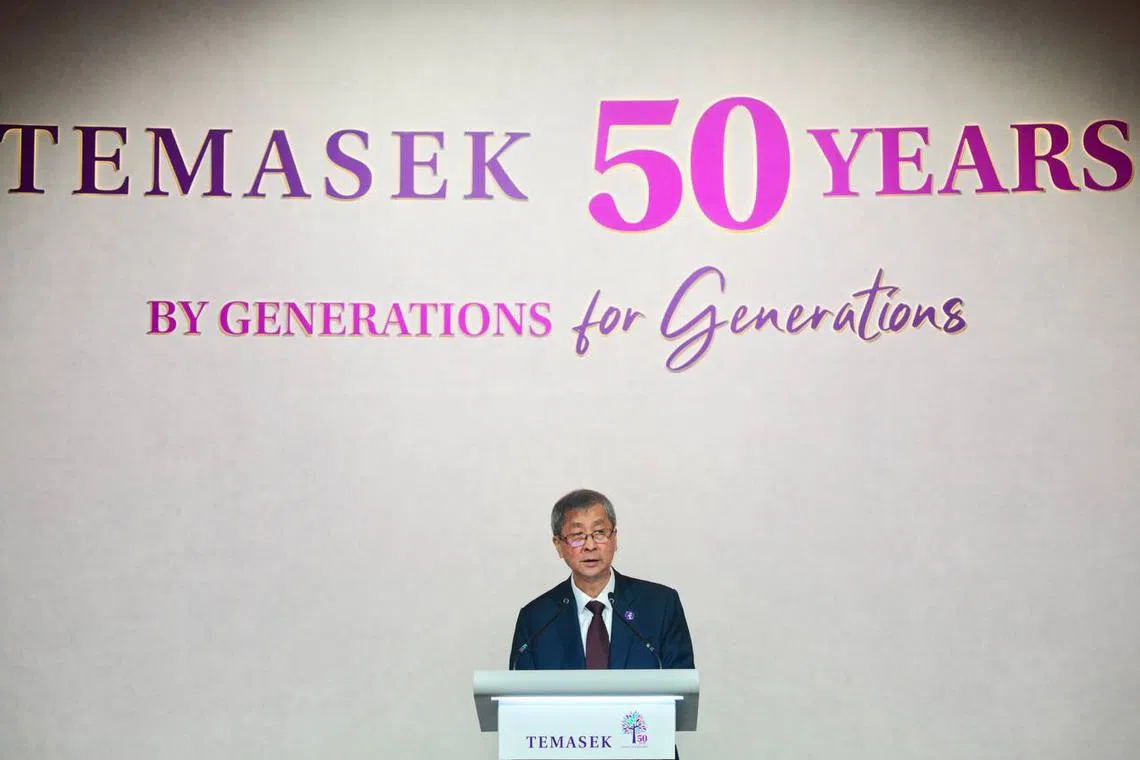Temasek commits $100m to climate action projects as it celebrates 50th anniversary
Sign up now: Get ST's newsletters delivered to your inbox

Temasek chairman Lim Boon Heng highlighted climate change as “the defining crisis of our time”.
ST PHOTO: AZMI ATHNI
SINGAPORE – Singapore’s investment company Temasek will set aside $100 million in capital to support climate action initiatives as part of its philanthropic endeavours, its chairman Lim Boon Heng said on Sept 23.
The sum will be used as concessional capital, which means that Temasek will channel the funds under terms that are more favourable than typical market loans to finance such projects.
In doing so, Temasek also hopes to draw additional capital from sources that might otherwise be hesitant to fund these projects, including commercial investors and other concessional financiers.
The funds will come from Temasek’s community gifts, which are philanthropic in nature and meant to create impact across generations, aligning with the company’s goals.
Mr Lim said: “We believe there can be a catalytic effect by mobilising funding from other sources such as public, private and philanthropic capital providers.
“Our philanthropic dollar will be amplified as more funding goes towards climate action.”
He was speaking at Temasek’s 50th anniversary dinner at the Shangri-La Singapore hotel.
He noted in his speech that Temasek has grown its investment reach over the past 50 years from just Singapore to the rest of the world, with 1,000 employees spread across nine countries.
Temasek’s purpose is to keep the future in mind to ensure that every generation prospers, he said.
“As an investment company, we can easily decide to focus only on our financial numbers. But that’s not what we are about.”
Temasek’s focus is on tackling tomorrow’s challenges, and climate change is “the defining crisis of our time”, said Mr Lim.
The company said in a media statement that while notable progress has been made on climate action in the past year, the pace and scale are not enough, given that the annual global financing gap is expected to double by 2030 for developing countries.
“Particularly in South-east Asia, ambitious plans to decarbonise while building the industries of tomorrow concurrently would require the scaling of catalytic financing,” it said.
Examples of projects that would require financing include clean infrastructure projects in Asia.
Temasek will also evaluate projects that seek to limit the rise of the world’s average surface temperature to no more than 1.5 deg C warmer than pre-industrial levels.
Temasek said: “This represents a novel way of advancing Temasek’s deployment of philanthropic capital, going beyond conventional grant making, and a deepened commitment towards the climate agenda.”
This is also the first time that Temasek is contributing concessional capital towards the green transition.
Its success will be measured by positive outcomes, including the ability to avoid, mitigate and adapt to the impact of climate change, promote biodiversity and enable people to live in harmony with nature, and encourage sustainable living choices and behaviours.



